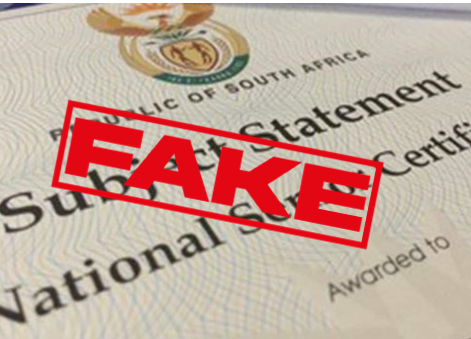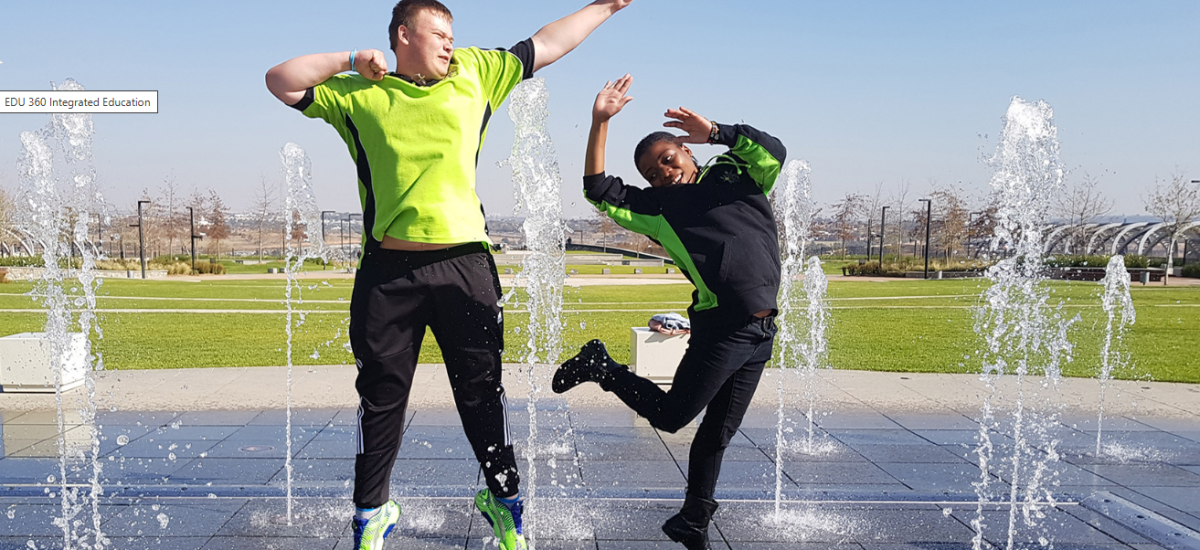Cheating the System: Uncovering South Africa’s Fake Matric Epidemic

South Africa's education system is under siege, not from budget cuts or overfilled classrooms, but from a growing black market that threatens to erode the very foundation of our qualifications. Fake matric certificates, available for as little as R1,500, are being openly sold online to desperate individuals looking for a shortcut to success. Shockingly, these fraudsters advertise blatantly on platforms like Facebook, making no attempt to be discreet. This issue has been around for a while, but what’s truly horrifying is how brazen these services are and how little is being done to stop them.
A Shocking Encounter
In a matter of minutes, I found myself conversing with one such certificate seller, who was openly advertising on Facebook. I pretended to be a parent whose son had failed matric and struggled to find work. The response? A step-by-step guide on how to buy a fake matric certificate. No questions asked, no verification needed. For R1,500, I could have a shiny new matric certificate in my hands, complete with a barcoded serial number. Two delivery options: either collect it at a local Pep Store using their Paxi service or have it couriered to my door.
This was not some fly-by-night operation. It was slick, efficient, and brazenly open for all to see. The seller even offered to show me a sample of the certificate to "confirm everything is fine."
But what exactly are we confirming? That South Africa's education system is now up for sale? That years of hard work by legitimate students can be devalued by a quick Facebook post and a WhatsApp transaction?
The Price of Desperation
Let’s be honest, the people who buy these certificates are not hardened criminals. They are desperate. Desperate for a job, desperate to support their families, desperate to escape the label of "failure." But this shortcut comes with a steep price. Using a fake certificate isn't just unethical, it’s illegal and can land you in jail. Even if the immediate consequences are avoided, the longer-term impact on one's self-worth, mental health, and future prospects is devastating.
Jacqueline Aitchison, Founder and Executive Head at Education Incorporated and a leading figure in professional development, shares this heartbreaking insight:
"It's heartbreaking that young people feel so cornered by their circumstances that they resort to fraudulent means to improve their prospects. But they don’t realise the long-term damage they’re doing to themselves and the trust in our education system. If we start questioning the validity of every matric certificate, we undermine the accomplishments of those who worked hard to earn them."
She’s right. Imagine if every job application was met with scepticism and every matric certificate was viewed with suspicion. It wouldn’t just affect the individuals who buy fake certificates—it would cast a shadow over every student who has earned their qualification through sweat, stress, and late-night study sessions.
The System Under Attack
The real problem here is more significant than just a few rogue operators. The fake certificate market is attacking the very heart of South Africa’s education system. It’s dragging the integrity of our qualifications through the mud. If a matric certificate no longer holds value, what does that say about our education system?
Jacqueline Aitchison hits the nail on the head once again:
"We need to find better ways to support learners who fail to achieve their academic goals. Education is not one-size-fits-all, and we should be offering alternative pathways for those who struggle rather than allowing the system to push them into making desperate, dangerous decisions."
She’s right. The education system must adapt. Not everyone will excel in the traditional academic pathway, and that’s okay. But when we fail to provide alternatives, we push people into the hands of fraudsters, and the entire system suffers for it.
Why Is This Still Happening?
So why hasn’t this market been stopped? Why are these fraudsters allowed to operate so openly, right under the noses of authorities? We’ve heard the warnings, but where is the action? It’s not enough to issue statements or rely on sporadic crackdowns. We need a sustained, coordinated effort to shut down these operators for good.
More importantly, we need to stop the demand. Blaming the sellers is easy, but the buyers are equally responsible. And that means providing better support for struggling students, offering them real, viable alternatives rather than forcing them into a corner where their only option is to buy a fake qualification.
The Way Forward
This scandal is a wake-up call. It's a reminder that we cannot afford to turn a blind eye to the corruption creeping into our education system. We need to act, and we need to act now. This isn't just about punishing those who produce fake certificates—it's about safeguarding the future of education in South Africa.
As a society, we must demand more from our government, education departments, and ourselves. We must provide real solutions for students who have no other option. We must support those who struggle so that no one has to resort to fraud to secure their future.
And to those out there who are considering buying a fake certificate, ask yourself: Is it really worth it? Because once you start down that path, there’s no going back.
About the Author:
Nicola Killops is an education specialist and writer who is passionate about promoting integrity and innovation in education. With over two decades of experience, she advocates for alternative pathways in learning and equitable support for all students.



